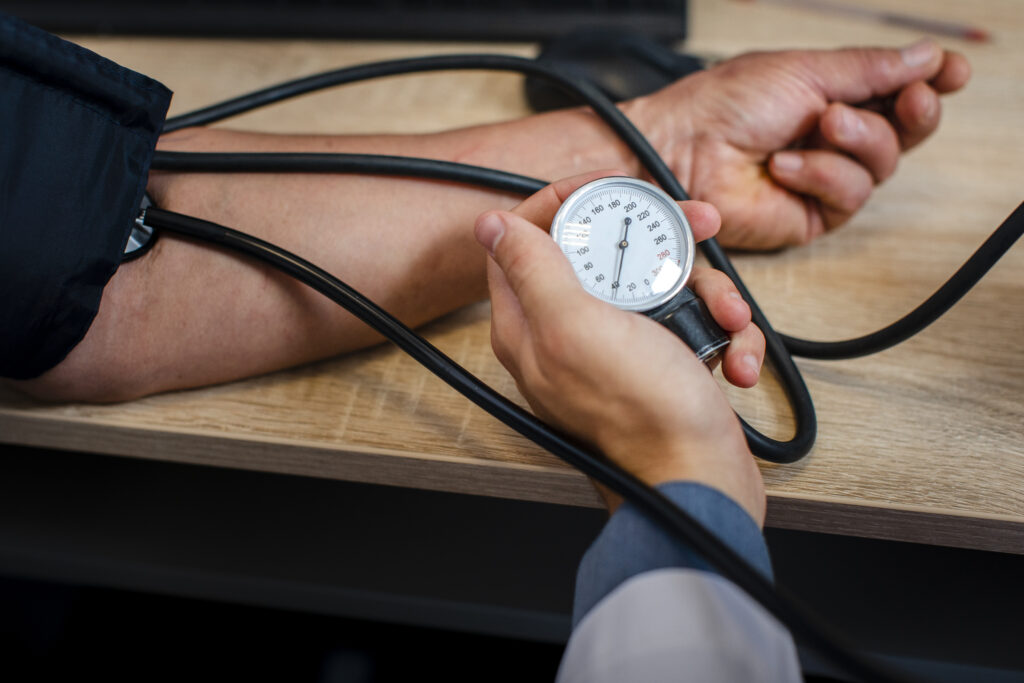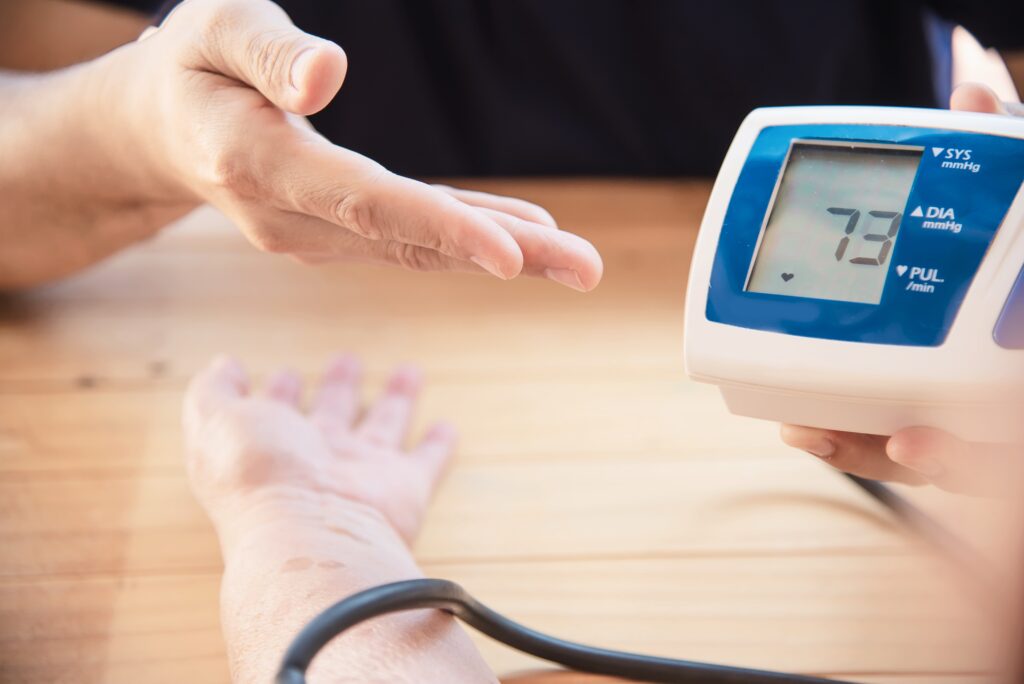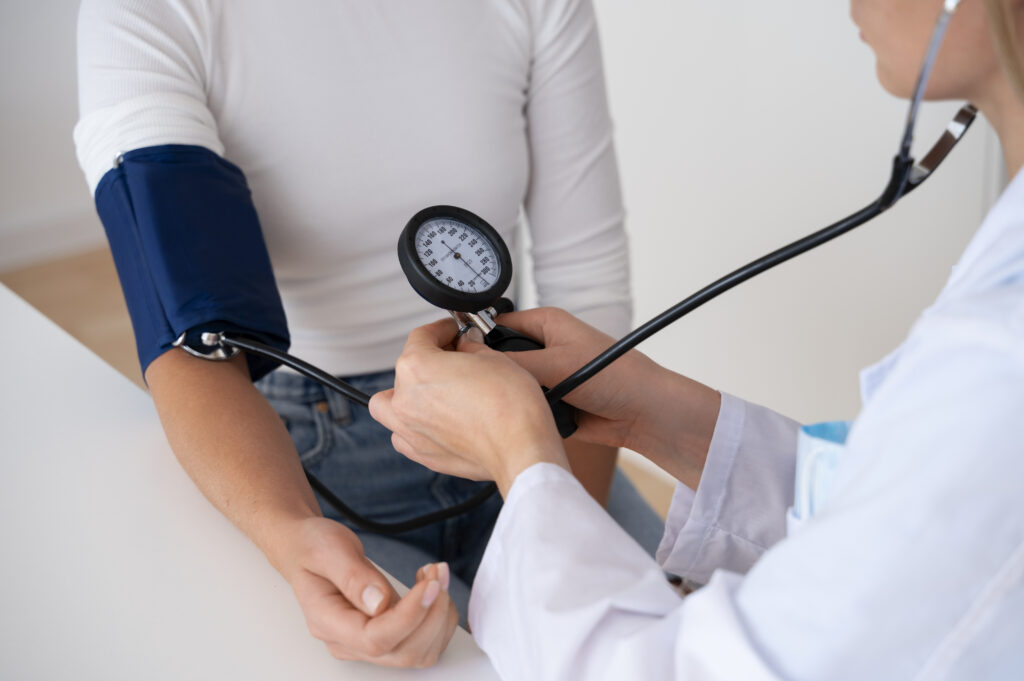Did you know that hypertension affects nearly half of adults worldwide, yet many people don’t even realize they have it? Recognizing the early signs of hypertension is crucial because catching it early can prevent serious problems like heart attacks or strokes. In this post, we’ll walk you through 10 warning signs to look out for, so you can take action to protect your health.
Table of Contents
ToggleHere are 10 Early Signs of Hypertension You Should Never Ignore

1. Persistent Headaches
Persistent headaches, especially in the morning, can be one of the early signs of hypertension. This happens because high blood pressure increases pressure in the blood vessels, which can lead to discomfort or a throbbing sensation in the head. If you notice recurring headaches that don’t improve with rest or medication, it’s important to consult a doctor to rule out hypertension or other health issues.
2. Shortness of Breath
Hypertension can make it harder to catch your breath, especially during physical activities like climbing stairs or walking briskly. This happens because high blood pressure puts extra strain on your heart, making it work harder to pump blood. Over time, this added strain can weaken your heart and affect your breathing. If you notice shortness of breath regularly, it could be one of the early signs of hypertension and shouldn’t be ignored.
3. Blurred Vision
High blood pressure can harm the tiny blood vessels in your eyes, leading to a condition called hypertensive retinopathy. This damage may cause blurred vision or even sudden changes in how you see. If you notice your vision becoming fuzzy or distorted, it could be one of the early signs of hypertension, and it’s important to get it checked by a doctor.

4. Dizziness
Feeling dizzy or lightheaded can be one of the early signs of hypertension. High blood pressure can affect blood flow to the brain, making you feel dizzy. If you experience dizziness, it’s important not to ignore it, as it can increase the risk of falls or fainting.
5. Chest Pain or Discomfort
Chest pain can be linked to hypertension because high blood pressure puts extra strain on the heart. If you feel any discomfort in your chest, it’s crucial to seek medical attention immediately, as it could be a sign of heart issues related to high blood pressure.
6. Frequent Nosebleeds
Hypertension can cause the blood vessels in your nose to become weak, leading to frequent nosebleeds. If you find yourself having nosebleeds often, it may be a sign of underlying hypertension, and you should get it checked by a doctor.
7. Lack of Energy
If you often feel tired or low on energy, high blood pressure could be the cause. Hypertension can reduce the oxygen flow to your muscles, making you feel exhausted. To manage this, try staying active, eating well, and getting enough rest.
8. Swelling in the Legs or Feet
When blood pressure is high, your body might retain fluid, causing swelling in your legs or feet. If the swelling doesn’t go away or is accompanied by other symptoms, it might indicate heart problems related to hypertension and should be checked by a doctor.

9. Irregular Heartbeat (Palpitations)
Hypertension can affect the way your heart beats, causing irregular heart rhythms or palpitations. If you feel your heart racing, fluttering, or skipping beats, it’s important to consult a doctor to check for any heart issues related to high blood pressure.
10. Tinnitus (Ringing in the Ears)
Ringing in the ears, also known as tinnitus, can be another early sign of hypertension. High blood pressure can affect blood flow to the inner ear, causing this annoying sound. If you experience this regularly, it’s worth discussing with a healthcare professional to rule out hypertension.
Conclusion
To wrap it up, the 10 alarming early signs of hypertension—like persistent headaches, shortness of breath, and chest pain—are crucial to recognize. Early detection can help prevent serious health issues down the road. Make it a habit to check your blood pressure regularly, and don’t hesitate to reach out to a healthcare professional if you notice any of these symptoms. We’d love to hear from you—feel free to share your experiences or ask any questions in the comments below!
FAQs
Common early signs of hypertension include persistent headaches, shortness of breath, chest pain, dizziness, blurred vision, and swelling in the legs or feet. It’s important to pay attention to these symptoms for early detection.
The only way to know for sure is by checking your blood pressure regularly. Hypertension often has no noticeable symptoms, which is why routine monitoring is key.
Yes, stress can temporarily raise blood pressure. However, chronic stress can contribute to long-term hypertension if not managed effectively.
While you can’t always prevent it, adopting a healthy lifestyle—including eating a balanced diet, exercising regularly, reducing salt intake, and managing stress—can help lower the risk of developing hypertension.
If you’re at risk for hypertension or over 40, it’s recommended to check your blood pressure at least once a year. If you have existing high blood pressure, more frequent monitoring may be necessary.